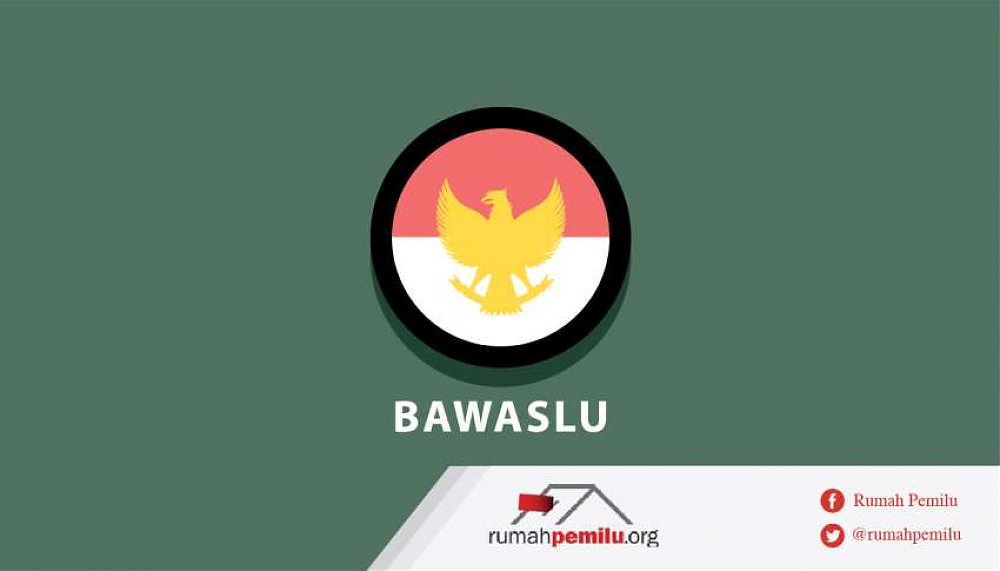The decision of Bawaslu Lampung Province on January 6, 2021 was quite a public nude. The verdict No. 02/Reg/L/TSM-PW/08.00/XII/2020 states that the report of violations committed by one of the spouses of candidates for the election with Number 3 (Eva Dwiana-Deddy Amarullah) is proven to be valid and convincing. Violations committed in the form of promising and/or providing money or other materials to influence the organizer and/or Voter.
In the election law regime, the violation is categorized as violation of electoral administration that occurs in a structured, systematic and massive (Article 135A paragraph (1) jo. Article 73 paragraph (1) of Law 10/2016). As a result, after Article 73 paragraph (1) of Law 10/2016, spouses of candidates who are proven to have committed these violations can be penalized in the form of cancellation as election participants. Then, according to Article 135A paragraph (4) and (5) law 10/2016KPU is not given the option unless it is mandatory to follow up the verdict.
For KPU, the follow-up of Bawaslu's verdict became the fruit of simalakama. It is because the KPU has determined the recapitulation of voting for the Bandar Lampung city elections long before the Bawaslu verdict is issued (December 15, 2020). The candidate pair with the number 3 has been determined as the participant with the most votes. Although, this determination is not yet final. There is still a lawsuit to resolve the election dispute for Bandar Lampung city submitted to the Constitutional Court.
On the other hand, the concentration of organizers also became divided to follow up bawaslu's decision that canceled the participation of one of the candidates' spouses. According to Article 135A paragraph (6) to (9) of Law No. 10 of 2016, the cancelled party is given the opportunity to appeal the decision of the organizer to the Supreme Court. If then the spouse of the candidate who canceled his participation sued the decree of the KPU to the Supreme Court then the process of organizing the election, especially for the election of Bandar Lampung City, undergoes an overlapping adjudication process, in the Supreme Court as well as in the Constitutional Court.
Election violations in the form of material lures to influence voters and organizers are criminal acts that need to be severely sanctioned. Any form of cheating means denying the principle of elections held based on honest competition. However, in order to impose penalties for violations committed by election participants must also be prepared based on clear procedures and do not cause confusion. The overlap of the follow-up process of election violations must also heed the principle of other elections, namely fairness reflected by the due process in handling all election violations.
The phenomenon that occurred in the Bandar Lampung city elections made the parties involved with the preparation of procedures and stages of the election need to rethink to reconstruct its policies. Among the most basic things is the character of the political violation of money and the scope of Bawaslu's authority in dropping the verdict. This short article will focus on both matters.
Money politics: Administrative Violations/Criminal Acts?
Attention to regulating violations in the form of giving money or other materials to influence voter choice has existed since the issuance of Law 1/2015, especially in Article 73. However, more extensive arrangements are regulated in Law 10/2016 which is the second amendment of Law 1/2015. The problem is that the change in regulation regarding such violations disrupts the categorization of violations stipulated in Article 73.
Law 10/2016 classifies violations in Article 73 as (i) administrative violations (see Article 135 paragraph (1) of Law No. 10 of 2016) as well as (ii) criminal acts (see Article 187A paragraph (1) of Law No. 10 of 2016). The grouping of political violations of money in both categories led to the intertwining of the handling process.
Administrative sanctions in the form of cancellation of participation in elections are a reasonable consequence if an act is included in an administrative violation. However, the politics of money has characteristics as a criminal act so that the examination process must also adhere to aspects of criminal proceedings law.
Law 10/2016 emphasizes the process of resolving political violations of money in terms of administrative violations and does not directly regulate its resolution in criminal groups. Article 135A of Law 10/2016 regulates in detail the stages of political suppression of money as an administrative violation. Meanwhile, in relation to criminal acts, Article 73 paragraph (5) of Law 10/2016 only mentions that administrative sanctions do not impose criminal sanctions.
In contrast, the construction built in the previous Law (Uu 1/2015) is to prioritize the process of examination of new courts and then impose administrative sanctions. Article 73 paragraph (2) of Law 1/2015 states, "... Candidates who are proven to have committed violations as referred to in paragraph (1) based on the decision of the court that has the force of law are still subject to cancellation sanctions as candidates...".
Administrative issues have different glasses with criminal problems, one of which, for example, is in the determination of perpetrators. The case that occurred in the Bandar Lampung city elections is an interesting thing to be used as a discussion discourse.
The violation report submitted to Bawaslu alleges that the candidate's spouse used the APBD to be used as campaign capital. The mayor of Bandar Lampung is currently the husband of Eva Dwiana (one of the number 3 candidates). In the perspective of criminal law, whether Eva Dwiana can be called the perpetrator of political violations of money or criminal is instead dropped to the mayor who is currently in office for abusing his power.
In addition, the Law also mentions a variety of actors, namely candidate spouses, campaign teams or volunteers. When looking at Bawaslu's verdict, it is not mentioned in detail in his consideration whether the alleged violations were committed by the candidate's spouse, campaign team or volunteers. If then the violation leads to the spouse of the candidate then the cancellation sanction can be dropped. However, if the violation is committed by the campaign team or volunteers then is it also subject to cancellation sanctions?
Bawaslu's verdict stated, in some instances it has been proven, according to the Examiner Assembly, that the Mayor actively provides assistance in order to win the spouse of the candidate number 3, one of whom is his wife. In criminal glasses, an active Mayor can be classified as a "campaign team" but cannot be referred to as a candidate's spouse. Then can the cancellation sanction be imposed, even if the perpetrator is not a candidate's spouse directly?
We need to solve this problem. The shaper of the policy in the revision of the Election Law is very important to determine unequivocally the characteristics of political violations of money and its resolution mechanisms so as not to cause confusion.
Bawaslu Verdict
The different thing introduced by Law 10/2016 is that Bawaslu as an election dispute resolution institution not only issued recommendations but also "Verdicts". The term used in the previous Law was "decision". The use of the term "Putusan" as a product nomenclature produced by an institution part of the election organizers confirms Bawaslu's position as a dispute resolution. The verdict (vonnis) is the product of adjudication institutions while the decision (beschikking) is the product of government institutions.
Although referred to as an adjudication institution, Bawaslu is not part of the judicial power. Adjudication can be through court lines or out of court. Arbitration and mediation are types of adjudications outside the courts.
What Bawaslu is doing is trying to resolve electoral disputes outside the courts. Similarly, Komnas HAM conducts dispute resolution related to the affairs of human rights violations committed by mediation. Unfortunately in Bahasa Indonesia vocabulary, the term verdict issued by the court is not distinguished from the dispute resolution institution outside the court. In English, a court ruling can be called a decision, ruling, or judgment. Meanwhile, the award of the arbitral institution or mediation is called an award.
Bawaslu's ruling is in characteristic as an out-of-court dispute resolution agency. In other words, despite issuing a ruling but Bawaslu is not an institution of judicial power subject to the law of court proceedings. This is important to point out because the inability to draw borders often leads to misunderstandings. One of them is in dealing with the political issue of money. When reading the procedures for handling political violations of money, as set forth in Bawaslu Regulation 9/2020, the nuances of the judiciary are more visceral than dispute resolution characterized by arbitration.
This work became Bawaslu's authority as a follow-up when the policy makers had established the character of election dispute resolution in a structured, systematic, and massive violation. However, before considering changing the policy on handling these violations, there is an issue in front of the eyes that needs to be resolved immediately, namely unraveling the tangled thread of election violations that occurred in the Bandar Lampung city elections. []
BISARIYADI
Graduate Program Student of Andalas University Faculty of Law











